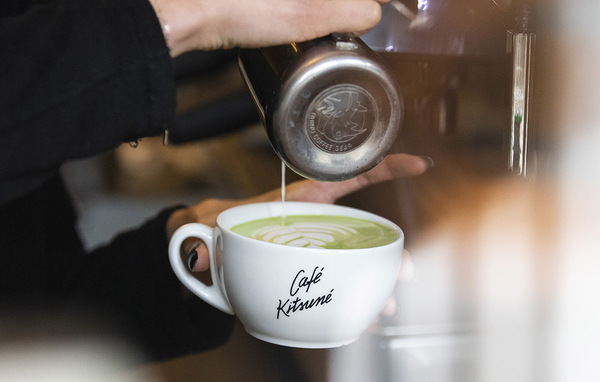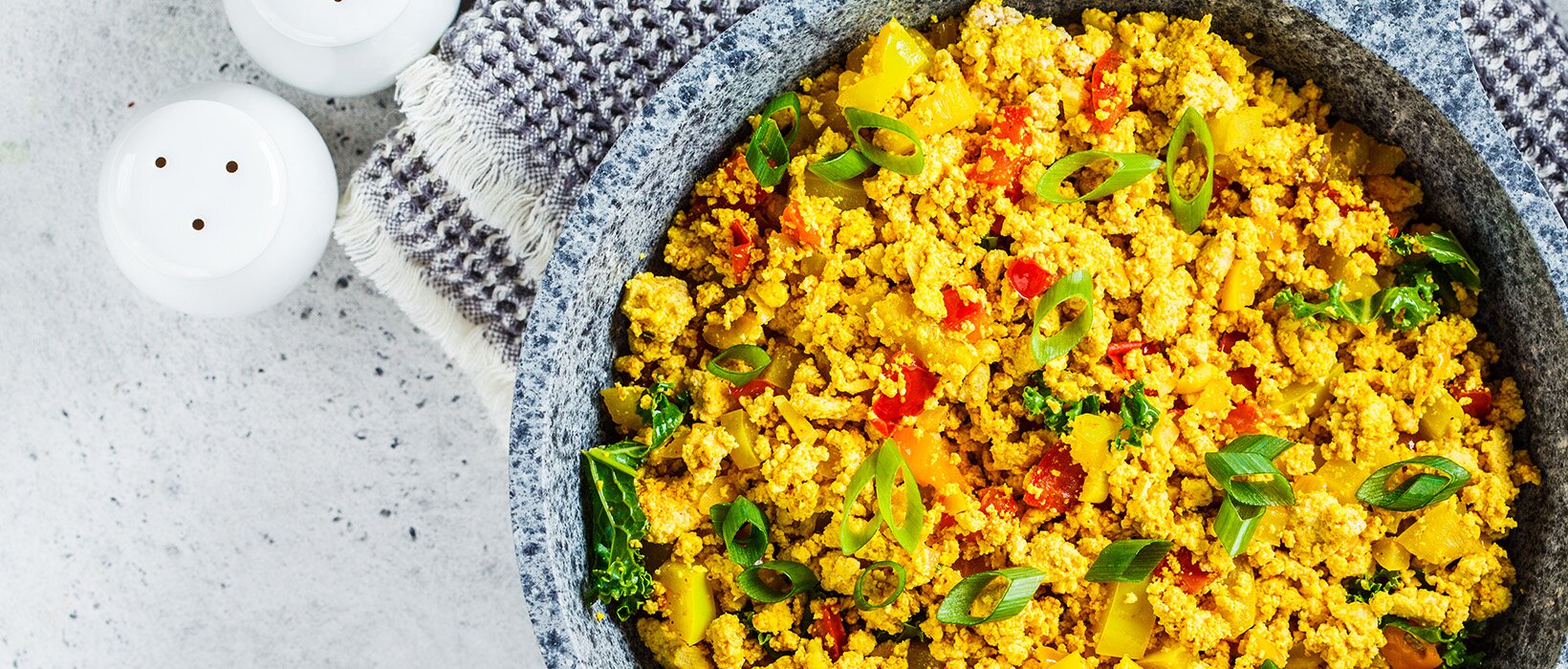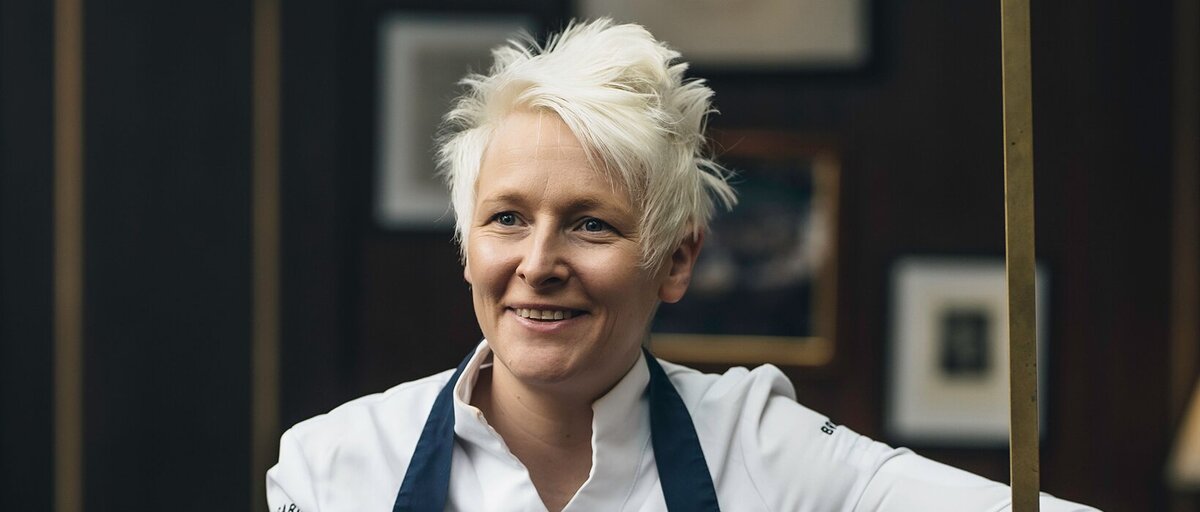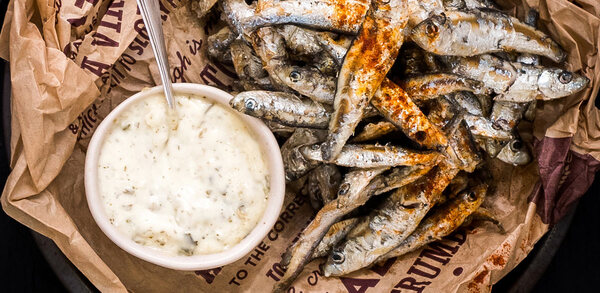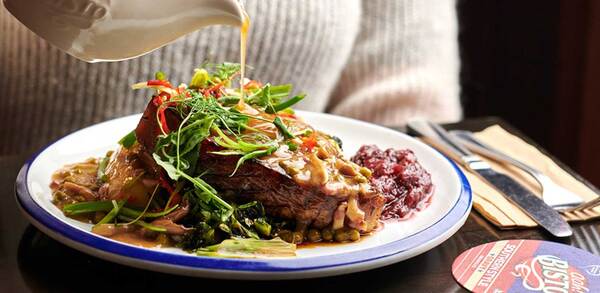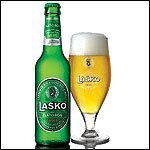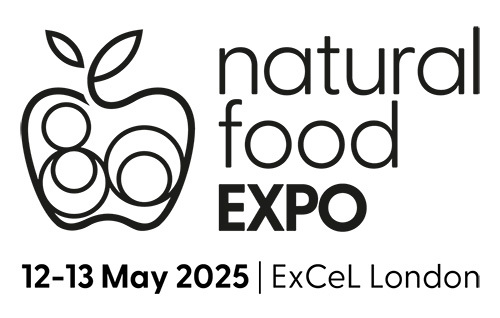Why it's flavour first for the next generation of vegan food
With ultra-processed meat alternatives falling out of favour, operators should concentrate on natural, flavoursome options for their vegan and vegetarian menu. Will Hawkes reports
David Knibbs, co-owner of Tofoo, calls it tofuphobia, the fear of tofu. “People remember tofu as soggy and tasteless,” he explains, referring to a previous era when tofu in Britain acquired a bad name because it was regarded as both those things and worse.
But it seems times have changed. Tofu is growing in popularity – and rapidly. Sales boomed post-Covid-19 and for Knibbs and partner Lydia Smith’s company, that upward trajectory has continued, albeit more gently, with growth of almost 17% in the past year. Even Rick Stein, generally regarded as more of a fish man, acknowledged tofu’s upward mobility when he interviewed Knibbs and Smith in his recent show, Rick Stein’s Food Stories, saying: “I think there’s a bit of a tofu revolution happening in this country.”
That’s undeniable, particularly when you see what’s on supermarket shelves, but Tofoo is increasingly focused on foodservice, too, where the meat alternatives revolution has stuttered a little of late.
“We’ve been around through the growth of meat alternatives,” says Knibbs, who bought a company called R&R Tofu with Smith in 2016 and renamed it Tofoo. “Maybe at one point [tofu was] regarded as something historic rather than current, but it’s never been through a huge dip like some of the meat mimics. I think there’s a consumer reaction against anything that’s ultra-processed; they want something that’s what I’d call more natural.”
It’s an interesting moment for plant-based food and beverages. While meat alternatives’ roller-coaster ride of popularity is well documented, it’s less commonly known that they can sometimes now be cheaper than their ‘conventional’ rivals: in Dutch supermarkets, according to a study conducted by research body Questionmark on behalf of plant-based pressure group ProVeg, consumers can save 20%. Prices are also converging in Belgium and Germany, the group added.
All very interesting – but in an era when plant-based options appear (and, seemingly, disappear) by the week, could it be an old classic that proves to have the most staying power?
No-fu no more
Tofoo is sold in a wide variety of forms. Made with water, soya beans and nigari (a natural coagulant created from seawater), it comes in blocks in smoked and sriracha variants, among others, marinated, scrambled and as tempeh – a harder, whole-bean option that originates in Indonesia. This variety helps to demonstrate how versatile Tofoo is, Knibbs says.
“We offer different flavour variants, but what we also try to do is show people how you can use it in a lot of different dishes,” he says. “There are so many ways you can use it – it’s not just something you cut up into little squares and stick in a stir-fry. I’d compare it to chicken; with the advent of different cuisines in the UK, you’ve seen a huge explosion in uses for chicken breasts and other parts of the chicken. The question I ask is: where is the credible meat-free alternative? It’s tofu – it’s a great flavour carrier like chicken and it’s hugely versatile.”
One cuisine Knibbs thinks tofu is particularly suited to is Mexican, in fajitas, burritos and more, due to its ability to absorb flavour and to offer a texture of its own – not a meat texture, he says, but something else. It’s a message that appears to be finding a growing audience: ToFoo’s Naked 280g block was the best-selling meat-free product in UK retail in January and February, according to Knibbs. This success in supermarkets and shops is beginning to bleed into foodservice. Tofoo is already available at pub chains like Slug & Lettuce and JW Lees, but interest is growing, says Knibbs: “We are beginning to see people think about what they offer, about [how to offer something] that isn’t just a burger or a sausage.”
All this is overcoming a previously widespread impression that tofu was just for vegans, not only among the general public but also chefs. A new Tofoo website is on the way, packed with tofu-based recipe ideas. “We’re all about helping people get over their tofuphobia, and find great things to do with it,” Knibbs says.
Flavour focus
Tofoo’s focus on flavour reflects a growing trend elsewhere in plant-based food and beverage. Impossible Foods’ products – from burgers to chicken nuggets – are available in restaurants as varied as Patty & Bun and Hungry Horse, and according to Noel Clarke, senior vice-president of international, the key is flavour.
“When it comes to trying new foods, we’ve consistently seen that taste is the number one driver,” he says. “It’s especially important in the plant-based sector because we’re being compared to recipes that have been ingrained in culinary traditions for generations. All of our Impossible products not only surpass other plant-based options on the market, but consistently meet or beat the animal equivalent on taste. For example, our ‘chicken’ nuggets were preferred 65% to 35% over a leading animal nugget in a blind taste test.”

Flavour is also key to one of the most interesting new arrivals in plant-based food, Shicken. Founded by husband and wife Parm and Satvinder Bains, it is listed in Brakes and at 2,500 pubs across the UK with its tikka kebabs. The company recently received £4m from vegan investor Veg Capital to scale-up manufacturing capacity at its base in Kent and “realise the global potential of its restaurant-quality range”.
“Shicken is all about bringing the nation’s favourite Asian cuisine into a convenient, sustainable plant-based offer, without compromising on a restaurant-quality, authentic experience,” says Parm. “There is still a poor perception of meat-free when it comes to taste, with almost 50% of consumers believing meat alternatives taste poor. Foodservice is a huge opportunity to shift this perception.”
It’s a perception that seems to be shifting more easily for Asian cuisines. “We are seeing a host of options being developed in this sector for the frozen foodservice market,” says Gordon Lauder, managing director of Central Foods. “Our Menuserve gluten-free vegan Asian prawn snack selection and the Menuserve bao bun hoisin jackfruit are two good examples. Jackfruit has become a popular meat substitute as a result of its texture, nutritional value and versatility.”

A sporting chance
Plant-based food and drink might seem a harder sell to sport fans, but that’s not necessarily the case. At venues as different as Ascot Racecourse and Forest Green Rovers FC, plant-based grub has become part of the furniture. During Royal Ascot last year, for example, all starters and desserts served in two of the racecourse’s fine dining restaurants were plant-based (asparagus with truffle emulsion and bitter chocolate cheesecake with blackberry gel) which equated to approximately 5,500 covers across the week.

Forest Green Rovers, meanwhile, are collaborating with food supply chain firm Allmanhall to provide essential products to deliver the plant-based food offering at the club’s ground. As part of the alliance, Allmanhall is funding community cooking events with local families to demonstrate affordable, healthy and nutritious recipes.
The desire for plant-based options has seeped into every section of the food market, from high-end French grub (French food specialist Tipiak has recently introduced a vegan canapé selection) to the fastest of foods, such as Aviko’s new Plant-Based Chilli Cheezz Nuggets.

Sweet ending
At the sweet end of things, Macphie has launched a new vegan cream, designed to be long-lasting and extremely versatile, with “a rich, creamy texture and flavour without compromising on quality or taste”.
“We are committed to pushing the boundaries of plant-based innovation, providing operators with products that work for them and allow them to satisfy their customer desires,” says Kirsty Matthews, brand manager at Macphie. “Our new vegan cream is a game-changer for the industry, offering a sustainable solution that meets the growing demand for delicious and sustainable plant-based products.”
Plant-based milks have long found a receptive audience. Oddlygood suggests operators take a look at its Barista Oat Drink range. Nina Gillsvik, global chief marketing officer, says: “Made for baristas by baristas, they deliver amazing foamability and complement a coffee’s flavour with a unique softness.”
“The range, which includes salted caramel and vanilla flavours, allows operators to experiment and offer a point of difference on menus. They can be steamed, foamed, warmed or used cold, making them adaptable to different seasons and occasions throughout the year.”
The way that alternatives to milk and cream like these have become normalised and indeed highly popular in recent years offers hope for other plant-based products, including, of course, tofu. Knibbs believes: “I think we’ll continue to see the mainstreaming of tofu over the next few years. We’re going to be spreading the brand out: we’re already [producing] tempeh and we’re shortly going to launch a seitan product as well. The conversion ratio of ‘tried it to regular consumer’ is as strong amongst flexitarians as it is among vegans or vegetarians.
“Not everyone is going to become a vegan, but many more people are going to be looking for more lightly-processed, mainstream alternatives to meat.” If that’s true, then the age of tofuphobia may indeed be at an end.
Suppliers
Allmanhall
Aviko
Central Foods
Impossible Foods
Macphie
Oddlygood
Shicken
Tipiak
Tofoo


